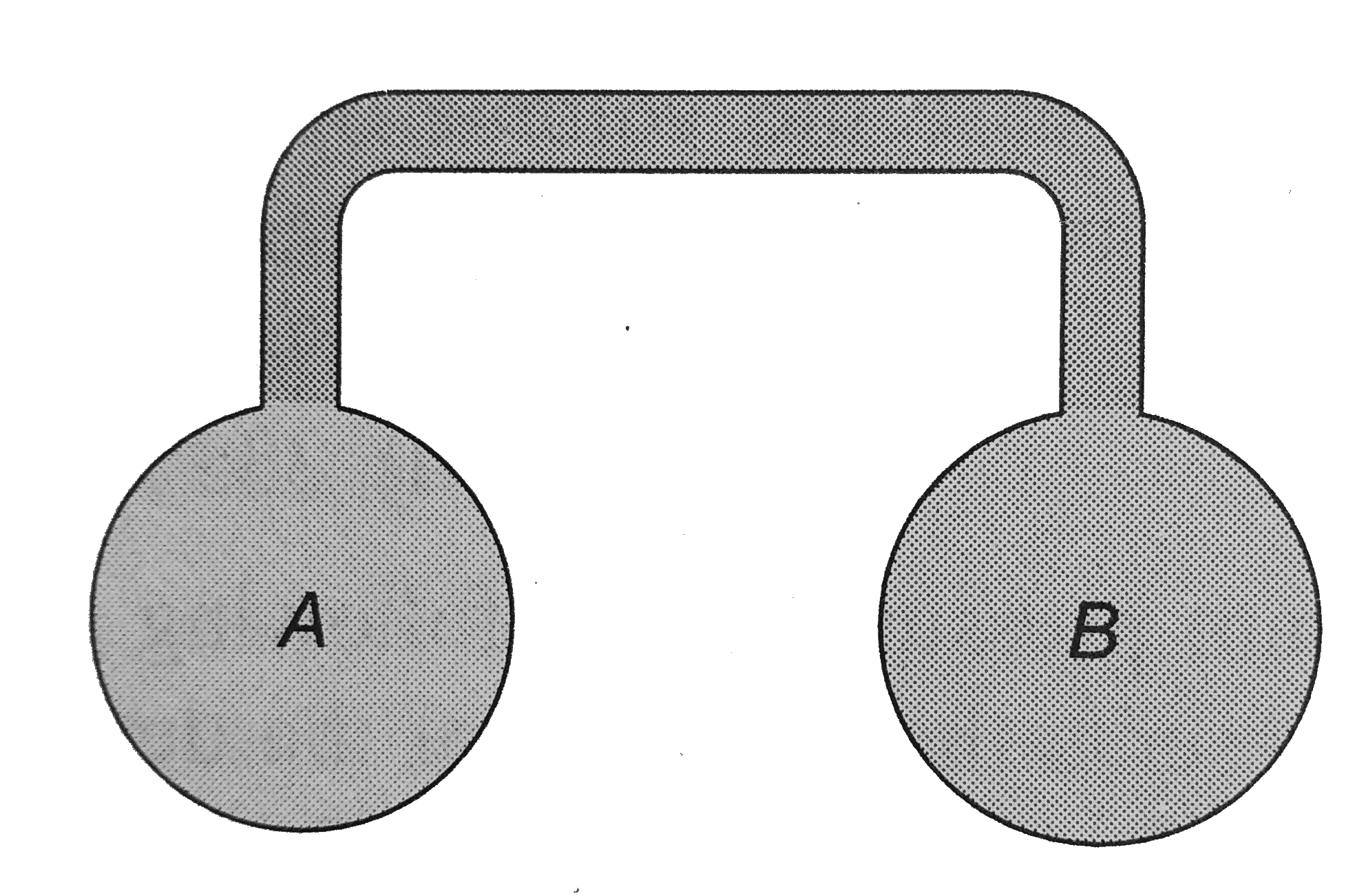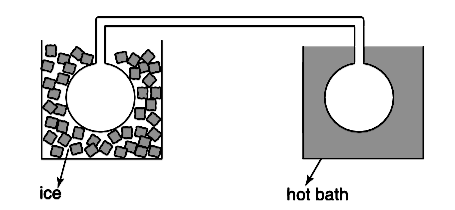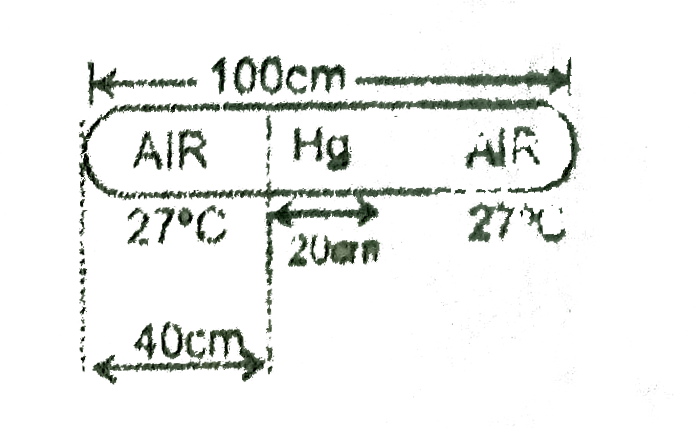Two glass bulbs of equal volume are connected by a narrow tube and are filled with a gas at 0∘C and a pressure of 76cm of mercury. One of the bulbs is then placed in melting ice and the other is placed in a water bath maintained at 62∘C. What is the new value of the pressure inside the bulbs? The volume of the connecting tube is negligible.

Since total number of moles remain same
n1+n2=n'1+n'2
P0VRT0+P0VRT0=PVRT0+PVRT
2P0T0=P(1T0+1T)
2×76(0+273)=P(1273+162+273)
2×76273=(335+273)P273×335=608P273×335
P=2×76×335608=83.75 cm of Hg
Topper's Solved these Questions
Similar Questions
two glass bulbs of equal volume are connected by a narrow tube and are filled with a gas at 0(∘)C at a pressure of 76cm of mercury. One of the bulbs is then placed in melting ice and the other is placed in a water bath maintained at 62∘C.What is the new value of the pressure inside the bulbs? The volume of the connecting tube is neigligible.
View SolutionTwo glass bulbs of equal volume and filled with an ideal gas at 500 K and pressure of 76 cm of Hg are connected by a norrow tube.One of the bulb is then placed in a water bath maintained at 700 K and the other bulb is maintained at 500 K.What is the new value of the pressure (in cm of Hg) inside the bulbs ? The volume of the connecting tube is negligible.Report your answer after multiplying by 67.
View Solution
Knowledge Check
- Question 1 - Select One
Two flasks of equal volume are connected by a narrow tube ( of negligible voume ) all at 27∘C and contain 0.70 mole of H2at 0.5 atm. One of the flask is then immersed into a bath kept at 127∘C , while the other remainsat 27∘C. The final pressure in each flask is :
AFinal pressure =0.5714 atmBFinal pressure =1.5714 atmCFinal pressure =0.5824 atmDNone of these - Question 2 - Select One
Two spherical vessel of equal volume are connected by a n arrow tube. The apparatus contains an ideal gas at one atmosphere and 300K. Now if one vessel is immersed in a bath of constant temperature 600K and the other in a bath of constant temperature 300K. then the common pressure will be
 A1atmB45atmC43atmD34atm
A1atmB45atmC43atmD34atm
Two identical glass bulbs, connected by a thin glass tube, are filled with He gas at S.T.P one of the bulbs is placed in a vessel containign ice while other is placed in a hot bath. The pressure of the gas increases to 1.5 times the initial pressure. If the temperature of a hot bath is 10t∘C. Find the value of t.
View SolutionTwo flasks of equal volume connected by a narrow tube (of negligible volume) are at 27∘C and contain 0.70 mole of H2 to 0.5atm One of the flask is then immersed into a bath kept at 127∘C while the other remains at 27∘C Calculate the final pressure and the number of mole of H2 in each flask .
View SolutionA glass bulb of volume 100 cm3 is connected by a narrow tube of negligible volume to another bulb of volume 300cm3. The apparatus is filled with air at a pressure of 76 cm of mercury and a temperatureof 12∘C, andthensealed. The smaller bulb is then immersedin melting ice whilst the larger bulb is placed in boiling water.Calculate the fraction of the total mass of air in the larger bulb, ignoring the expansion of the bulbs.
View SolutionTwo identical glass bulbs are interconnected by a thin tube of negligible volume. An ideal gas is filled in the bulbs at STP. One bulb is placed in a tub of melting ice and the other bulb is placed in a hot bath. The gas pressure in the bulbs becomes 1.5 times. Find the tem perature of the hot bath. Which bulb has more gas?
 View Solution
View SolutionTwo vessels of equal capacity are connected together by a narrow tube of negligible volume. The contai a gas at atmospheric pressure and 27∘C. One is cooled to 0∘C and the other is heated to 100∘C. Calculate the resulting pressure, assuming that the volume of the vessels remains unchanged.
View SolutionIn the given figure a glass tube lies horizontally with the middle 20cm containing mercury. The two ends of the tube contains air at 27∘C and at a pressure 76cm of mercuy. Now the air column on one side in maintained at 0∘C and the other side is maintained at 127∘C. Find the new length of the air column on the cooler side. Neglect the changes in the volume of mercury and of the glass.
 View Solution
View Solution

